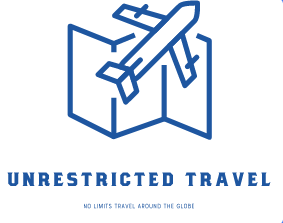The holidays are approaching and the holiday travel season is upon us. The omicron variant that has been circulating since the end of last year is now causing some travelers to rethink their plans. While many people are staying home, others are going abroad for the holiday travel season, with travel forecasts predicting that the number of flights would be close to pre-pandemic levels. And while international air travel is expected to remain relatively stable, individual states could impose quarantine restrictions.

The Omicron variant is a coronavirus that is causing the rash to spread throughout the United States. It is not affecting air travel in the U.S. in the run-up to Christmas. More than two million travelers passed through security checkpoints at airports around the country during the holiday season. But if you’re thinking about traveling this year, consider the risk of infection and the possible effects it can have on your trip.
Vaccinations are the only way to protect yourself from the outbreak. You can choose to wear a face mask, which will help you protect your respiratory system from the bacteria that are present in your respiratory system. The mask also helps prevent COVID-19, which is a strain of the virus that causes a rash. But it’s not enough to just wear a mask. You’ll still have to find a new destination before the expiry date. And the fare difference will be hefty if you book your flight last-minute. The holiday season is a busy time of the year, and a trip could become ruined by a travel ban or omicron.
The latest statistics show that more than 100 million people in the United States will be on holiday trips during the holiday season. Despite the warnings, there is still a good chance of you catching omicron. Vaccination can protect you against the worst symptoms and prevent the need for hospitalization. It’s also a great idea to keep a spare bag and travel mask handy for a quick change of location.
You should also purchase travel insurance, which will protect you from the impact of travel omicron on your holiday. If you’re traveling internationally, you’ll have to test for the disease at least 72 hours before your departure. This means that you’ll have to cancel your holiday altogether. If you’re traveling for a holiday with your family, it’s best to purchase travel insurance that covers COVID-19.
While the omicron COVID-19 variant has already made its way to the United States, the virus is not yet making its way to the U.S., where it is currently affecting over 100 million people. Although the omicron variant is milder for most people, it is still dangerous for the most vulnerable people. Elderly Americans, vaccinated people, and unvaccinated travelers are more vulnerable to the disease.
Luckily, the omicron variant of the coronavirus is only found in some areas of the world, but it’s spreading quickly in the U.S. as the busiest travel season is underway. This virus has been a major concern for some travelers, and many businesses and venues are limiting service. A full vaccination will protect you from exposure to omicron, so don’t let this put your holiday plans on hold.
Luckily, the travel omicron variant has not caused any major illness in the United States so far. However, it has affected the travel industry. While the new variant is more deadly than its previous versions, the virus is highly contagious and can make people ill. Vaccination is the best way to avoid this virus. In fact, the vaccine is now available at most airports. This makes it easy for travelers to get the omicron virus.
The omicron variant is particularly problematic because it is a highly infectious disease. Unlike previous strains, the new strain is more resistant to antibiotics and should not be taken by travelers. The risk of contracting the disease is much higher when traveling to a high-risk area. Therefore, people should take extra precautions and wear a mask while traveling. Infected travelers should also consider the cost of the medication.





